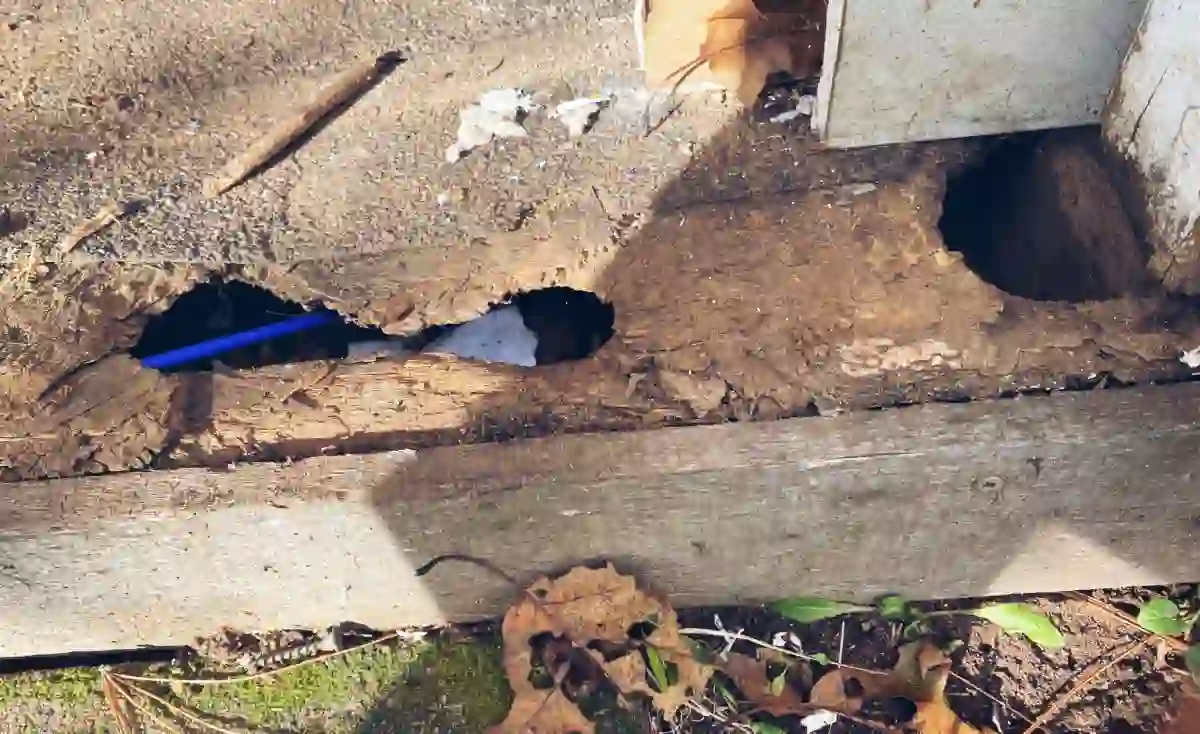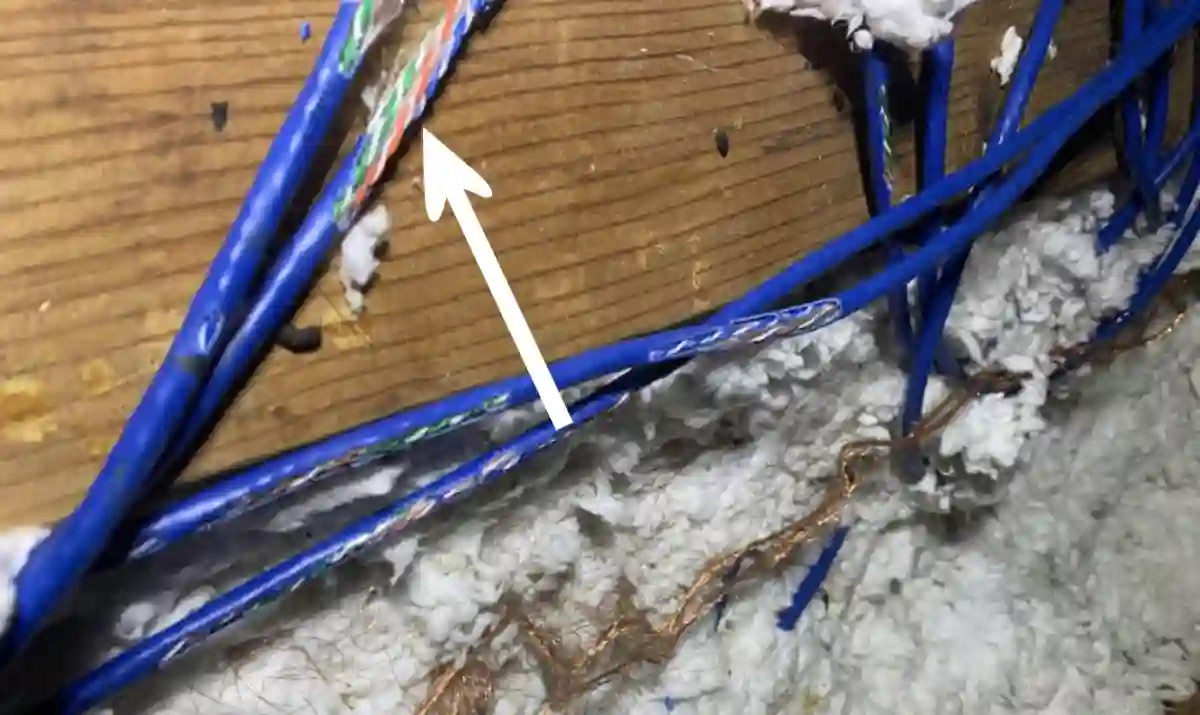Rats are adaptable rodents in terms of habitat and dietary selection. They exhibit a broad range of food preferences, consuming everything from meat to fruits like lemon. While they are opportunistic eaters who wouldn’t refuse a free meal, they do exhibit distinct tastes. For instance, if a citrus rat establishes its home in your garden, it will primarily feast on lemons and other citrus fruits. As such, you want to know how to stop rats from eating lemons to protect your garden.
How to stop rats from eating lemons

Roof rats are among the most prevalent species of rats and a primary source of bubonic plague. They have a penchant for citrus fruits (UC IPM) and are exceptional climbers.
If you have a lemon tree, and just discovered that rats are feasting on it, I understand that can be distressing. However, safeguarding a citrus tree from rats is not a difficult task. Follow the simple methods below to stop rats from eating lemons:
1. Keep a distance between trees
Roof rats are known to inhabit rooftops, attics, and citrus or palm trees. Given their skillful climbing abilities, it can be a challenge to deter them from invading your yard. Nevertheless, you can take certain precautions to stop rats from eating lemons, such as maintaining a reasonable distance between your lemon trees. Avoid providing an easy route for the rats to jump from one tree to another.
If tree branches are positioned closely together, rats can easily navigate and leap from one tree to the next.
Moreover, if a tree is nearer to your house, it offers a convenient pathway for them to ascend onto your roof and potentially invade your home. Consequently, ensure adequate spacing between your lemon trees, while also keeping them distanced from nearby wires and the branches of other trees. As you plant your lemon trees, the branches should not come into contact, and maintain a reasonable distance between each tree.
2. Ensure regular tree pruning
Rats can be cunning and are adept at taking cover under drooping tree branches. Any branches that hang low and touch the ground could serve as shelters for rats, enabling them to feast on fallen lemon fruit while remaining inconspicuous.
Therefore, to stop rats from eating lemons or even approaching them in the first place, regularly prune and trim the branches, ensuring they don’t make contact with the ground.
Rats typically prefer staying above ground level and often leap from neighboring trees to gain access to lemon trees. Deter them by ensuring that the branches of your lemon trees do not come into contact with any other objects. Additionally, tree pruning can result in clearer and more visible ground conditions. This openness will make rats feel uneasy and exposed to potential predators, discouraging them from going near your lemon trees.
3. Set up rat guards on your tree trunks

While Norway and roof rat species contribute to crop damage, roof rats are primarily responsible for the destruction of backyard fruit. Their climbing abilities enable them to ascend trees and chimneys with ease. To counter this, installing guards on your tree trunks can effectively deter these pests from climbing.
Once you’ve trimmed the branches, you can install rat guards on the trunks of your trees. You can create a basic rat guard using a metal sheet that is between 18-24 inches wide and extends 2 inches beyond the tree’s circumference.
Secure the ends of the sheet metal without harming the tree using a piece of wire bent to resemble a large staple. Position the backside of the wire against the tree trunk and thread the two ends through the perforations in the sheet metal.
To fasten the ends of the rat guard, bend the wire outwards at a right angle. It’s also important to note that the effectiveness of rat guards heavily relies on the proper spacing between the trees.
4. Apply fertilizers
Consider an environmentally friendly fertilizer to stop rats from eating lemons, you can deter rats from your lemon trees. The optimal time to fertilize your lemon tree is from January through the beginning of February. Follow these guidelines to effectively apply fertilizers to your lemon plant:
- Use either organic compost or conventional fertilizers.
- Once you’ve chosen a fertilizer, spread it over the compost (a protective layer on the ground).
- If the fertilizer and compost aren’t in contact with moist soil, they won’t be able to reach the plant roots.
- Phosphorus can be left in clay for an extended period to boost its levels.
- Dormant oil can serve as an effective deterrent against rats. It suffocates the rats, so it’s best to apply it during the warmer seasons.
5. Pluck your lemons once initially ripened
Rats are lured by the scent of food, which includes your ripen lemon. They quickly rush to eat any fruit they detect, especially if it has fallen to the ground. Hence, you should promptly collect any lemon fruit that drops from your tree.
If you intend to discard the lemons, ensure your trash is securely sealed to prevent rats and other rodents from accessing and contaminating it.
Note that lemons often drop from the tree during heavy windstorms or when they become too ripe. As part of your strategy to stop rats from eating lemons, make sure to promptly collect any fallen lemons and keep a close watch for those that are nearing ripeness and may be ready to harvest.
6. Use rat bait boxes
Bait boxes are a highly efficient method for attracting rats. These boxes enable trapping rats effortlessly and removing them from your property by positioning these boxes near your lemon trees. Moreover, bait boxes can be filled with enticing foods for rats, such as bacon, Slim Jims, dried fruit, or even peanut butter.
7. Don’t underestimate keeping your environment clean
Maintaining cleanliness is the key to deterring rats from your lemon trees. According to King County, Washington, all you have to do is “mow your lawn regularly. Keep yards and alleys clean—take junk to the dump!” If hygiene practices are not consistently upheld, rats will rapidly return, undermining the benefits of any other preventive measures taken.
Uphold excellent cleanliness both inside and outside your structures to minimize the availability of food for rats. This means that the area surrounding your lemon should be free from rubbish. Harvest lemons when they’re ripe and dispose of any spoiled items. Moreover, avoid leaving pet food outdoors overnight. Eliminate any present or possible nesting areas from your garden, and persistently maintain a clean environment.
8. Consider biological rodent control methods
You can stop rats from eating lemons through biological control using other animals. Rat snakes, such as yellow rat snakes, gray rat snakes, and red rat snakes, are particularly useful in preventing rat infestations in your crops as they feed on rodents while ignoring the fruit.
Moreover, a clean and welcoming environment for owls and raptors can also help keep rats away from your trees.
Even cats and dogs can also be natural predators to hunt rats. While cats may be effective in catching young and agile rats, they may struggle to control adult roof rats.
9. Protect your lemons with rodent-resistant birdfeeders
Rats are typically drawn to locations where food is available, and they particularly enjoy bird seeds. To safeguard your plants from rats, consider utilizing a bird feeder that is resistant to rodents.
Here are some suggestions on how to create a birdfeeder that is resistant to rodents:
- Use a baffle device to hinder rats from ascending the trees.
- Install the baffle either below the birdfeeder or directly above the feeder pole to prevent rats from reaching higher into the tree.
- Consider whether guards or plastic domes for bird feeders. These accessories can deter rats from accessing bird seeds and getting close to your trees.
- Exercise caution when selecting a birdfeeder, as the right choice can aid in safeguarding your lemon trees from rat invasions.
10. Install an ultrasonic or electromagnetic device next to lemon
Experts recommend setting up an ultrasonic or electromagnetic device near your lemon trees. The device can easily be plugged into a standard home electrical outlet to produce high-frequency waves that humans can’t hear but are disturbing to rats. Consequently, the waves disorient the rats and hinder their ability to target your lemon.
While ultrasonic or electromagnetic devices can deter rats from approaching your trees, they perform optimally when used alongside other repellents.
I recommend combining ultrasonic deterrents with traps and other rat-proofing strategies. Despite numerous assertions that electromagnetic and ultrasonic devices can effectively deter rodents from yards and structures, no concrete proof suggests that these repellents can drive rats away from their established habitats.
11. Set rat traps outside
Trapping rats offers several advantages compared to using poison like homemade baking soda. Poison can pose risks to your trees, pets, and other animals, whereas trapping avoids such potential harm.
First, identify rat entry points to help determine strategic locations for setting the traps outside. This method allows for targeted trapping without endangering non-targeted species or causing harm to the environment. To effectively set traps, consider the following steps:
- Choose snap traps or bait traps designed to attract rats.
- Place traps in areas where you have observed rat activity, including at the base of the lemon tree.
- Use string or wire to securely fasten the traps to the lemon tree.
- Alternatively, you can employ anticoagulant wax blocks by placing them in bait stations specifically designed for trapping rats.
- Position the bait station approximately 6 feet above the ground in the lemon tree to effectively capture citrus rats.
Consider setting a live trap like bucket rat trap with water to capture rats alive if you prefer to be humane. You would have to release the rats about 2 miles away from your farm or garden.
Conclusion
Experts often say that lemon repels rats but how come the same pest is attacking your lemon plant? That’s because only the lemon oil repels rats. That said, follow the outlined methods to protect your lemon from invasive rats, as well as your garden.






